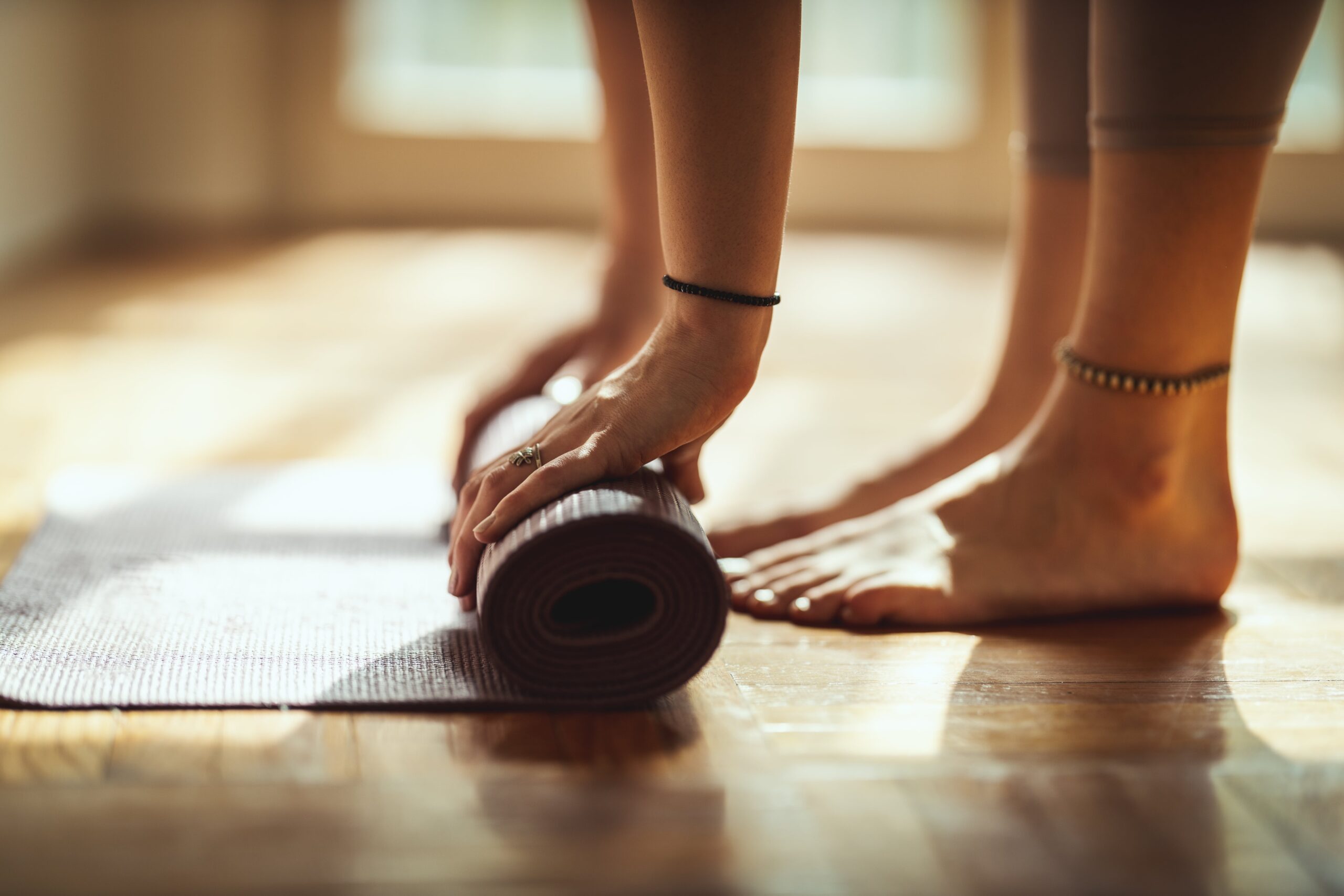Yoga as an embodiment practice
There is a growing interest in the benefits of practicing yoga for those struggling with an eating disorder. You might be wondering how a form of exercise could help with eating disorder recovery – however yoga is about so much more than moving from pose to pose or sitting cross legged on the floor. By promoting slowing down and turning the awareness inwards, yoga encourages a harmony between the mind and body that is lost through the eating disorder.
In this article, we’ll do a deep dive into the benefits of yoga in eating disorder recovery and the evidence supporting it.
What does the research say?
There is plenty of evidence supporting the benefits of yoga in eating disorder recovery. To describe a few…
One study of a group of women with Bulimia Nervosa or EDNOS found a significant decrease in eating disorder psychopathology after six months of twice-weekly yoga classes.1 The most significant impact was seen in a reduction in eating concern, weight concern and restriction.
Similarly, a study of women between the ages of 18-30 found a reduction in body-image dissatisfaction and spent less time focused on their appearance when they practiced yoga twice a week for twelve weeks.2
Another small study of adolescents with an eating disorder being treated as outpatients found a significant decrease in anxiety, depression, and body image disturbance after completing a weekly yoga class for twelve weeks.3
What is it about yoga that supports recovery?
Yoga can be uncomfortable, both physically and emotionally. By offering a safe space that is free of distraction, there is the opportunity to process and release emotions that may have been pushed down for a long time or coped with through the eating disorder. You might also find you can prove to yourself that you can survive hard things and that discomfort will pass. Learning to sit with discomfort and respond to your feelings rather than react are key skills for eating disorder recovery, as they allow you to navigate the urge to engage in disordered behaviours.
Another idea that is emphasised in most yoga classes is meeting yourself where you’re at. This means not comparing yourself to others, or even to your own “best self”. Instead, yoga encourages you listen to your body in any given moment, and to give it what it needs. Some days your healthy self will want a little more movement; some days it will need rest. Both are okay!
We said earlier that yoga is not just about the poses, but they have their place too! Moving (or holding still) with mindful intention allows you to connect in with your body without any focus on appearance. Despite an often-obsessive focus on the body, eating disorders leave us feeling incredibly numb and disconnected from our physical selves. Too often, we treat the body like the problem, when reconnecting with it can actually be the solution.
What should I look for in a yoga class?
Not every yoga class is going to be helpful, especially in the early stages of recovery. Choose classes that are gentle and focused on relaxation and stretching rather than more intensive movement. These classes are sometimes called “Yin yoga” or “restorative yoga”. Yoga classes that are trauma-informed, or even specifically directed towards eating disorder recovery are also out there – we suggest Googling what is available in your area.
Like almost all good things, diet culture has unfortunately found its way into some parts of the yoga community. While many studios are “safe” spaces, not all will be. Have a look at their website and social media to see what kind of messaging they promote and avoid any that refer to using exercise or food to change your physical appearance.
It should also be noted explicitly that while we obviously believe in the power of yoga in supporting eating disorder recovery, it should be practiced in combination with other treatment modalities and should NOT replace traditional evidence-based treatments. Make sure you discuss with your team before you introduce any exercise!
To learn more about how our dietitians can support you in your eating disorder recovery, book a free discovery call.
Karli Battaglia, APD
EHL Team x
References
1. Karlsen K, Vrabel K, Bratland-Sanda S, Ulleberg P, Benum K. Effect of yoga in the treatment of eating disorders: A single-blinded randomized controlled trial with 6-months follow-up. International Journal of Yoga. 2018;11(2):166.
2. Ariel-Donges A, Gordon E, Bauman V, Perri M. Does Yoga Help College-Aged Women with Body-Image Dissatisfaction Feel Better About Their Bodies?. Sex Roles. 2018;80(1-2):41-51.
3. Hall A, Ofei-Tenkorang N, Machan J, Gordon C. Use of yoga in outpatient eating disorder treatment: a pilot study. Journal of Eating Disorders. 2016;4(1).

